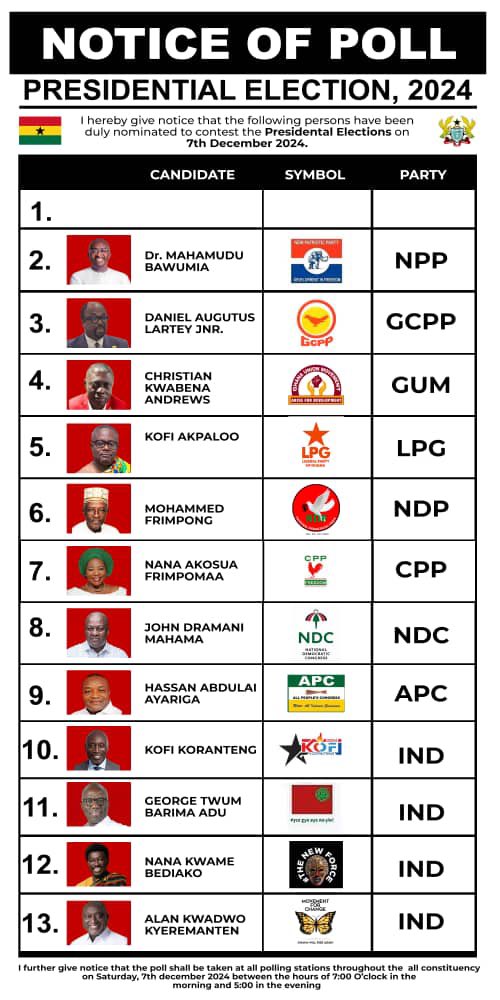Rejected Ballots and Voter Turnout: Analyzing the Statistics Behind the Final Election Results

The Electoral Commission (EC) of Ghana has officially declared John Dramani Mahama as the winner of the 2024 presidential election. The results, announced by EC Chairperson Jean Mensa on December 9, 2024, provided significant details regarding voter turnout, rejected ballots, and the final tally of votes cast during the election.
According to the EC’s announcement, the voter turnout for the election was 60.9%. This figure was based on the results from 267 constituencies out of the 276 nationwide. A total of 11,430,531 votes were cast from 18,774,159 registered voters, although results from nine constituencies are still pending due to disruptions that hindered the voting process in those areas.
One of the notable statistics provided by the EC was the number of rejected ballots, which stood at 239,109. This emphasizes the need for comprehensive voter education to ensure that voters understand how to correctly complete their ballots, thus avoiding unnecessary invalid votes. Jean Mensa pointed out, “The total valid votes cast amounted to 11,191,422, while the rejected ballots numbered 239,109.”
The issue of rejected ballots has been raised as an area that needs attention in future elections, as it reflects the importance of proper voter guidance in ensuring the election process is as efficient and accurate as possible.
Despite the incomplete results from nine constituencies, which are yet to be fully collated due to issues in those areas, Jean Mensa clarified that these outstanding votes would not affect the final result of the election. She explained, “Even if all the valid votes from the nine constituencies were added to the candidate who placed second, the total would still not meet the 50% plus one threshold required to win the election.”
Mahama, representing the National Democratic Congress (NDC), emerged victorious in the 2024 presidential race with a total of 6,328,397 votes, accounting for 56.55% of the overall votes cast. His closest competitor, Dr. Mahamudu Bawumia from the New Patriotic Party (NPP), garnered 4,657,304 votes, which represented 41.61% of the votes.
The electoral process was closely watched by both local and international observers, and the final results indicate a clear win for Mahama, who secured a commanding lead. Despite the pending results from certain constituencies, it was clear that Mahama’s total vote count surpassed the threshold required for victory. The declared voter turnout of 60.9% reflects a strong level of civic participation, though it also highlights the challenges faced in some areas, as evidenced by the delays in the collation process.
The number of rejected ballots serves as a reminder of the importance of educating voters on proper voting methods and the need for vigilance in ensuring that votes are counted accurately. Although rejected votes are a common occurrence in elections worldwide, the relatively high number of rejected ballots in Ghana underlines the need for continued investment in voter education programs.
The 2024 presidential election results reflect the democratic process in Ghana and indicate the willingness of the electorate to engage in the political process. John Dramani Mahama’s victory with 56.55% of the vote gives him a strong mandate to lead the nation in the upcoming term. The election also serves as a reminder of the challenges faced during the voting process, from disruptions in some constituencies to the issue of rejected ballots. However, despite these challenges, the EC’s transparency and the clear outcome of the election have helped to maintain the integrity of the process. The final results signal a new chapter for Ghana, with Mahama now set to take office as the nation’s President.







